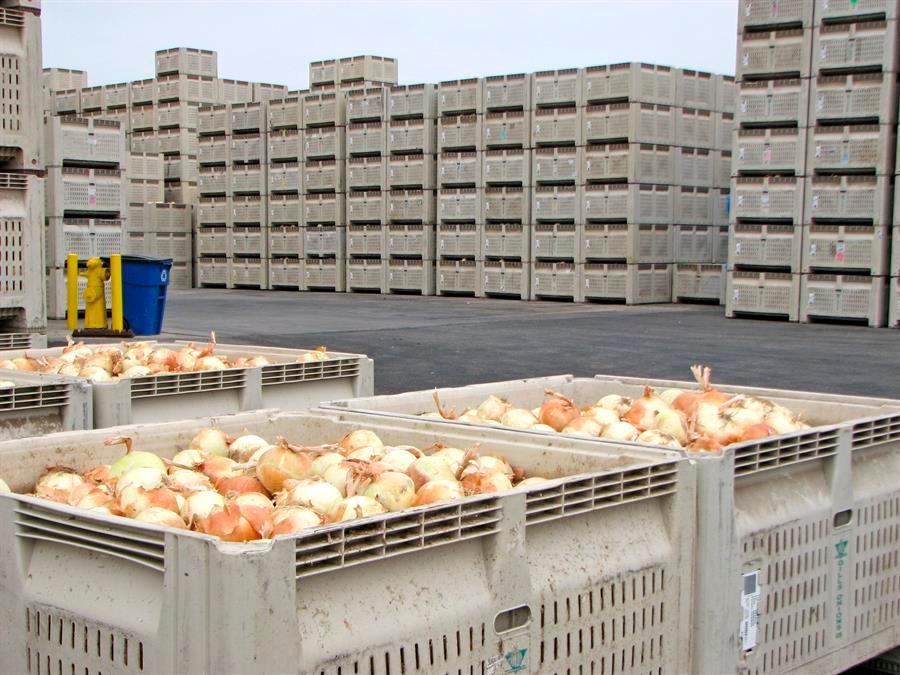Officials from the United States Food and Drug Administration (FDA) indicated that until now there is no alert for the closure of borders to Mexican onions after the institution investigated the possible presence of Salmonella Oranienburg in the food, reported this Sunday the Government of Mexico.
In late October, the FDA and the US Centers for Disease Control and Prevention (CDC) investigated a company from Hailey, Idaho, which recalled red, yellow, and white onions from the US market in those days.
The company was supplied from production units in the state of Chihuahua, northern Mexico, before which the Secretariat of Agriculture and Rural Development (Sader) of Mexico, through the National Service of Health, Safety and Food Quality (Senasica), also opened an investigation in that entity.
On the subject, Sader explained in a statement that the regional director of the FDA for Latin America, Katherine Serrano, and the regional deputy director of the office for Latin America, Michelle Rodríguez, commented that, “so far, there is no alert that establishes the closure of the borders to Mexican onions. “
In addition, both appreciated the cooperation of the specialists of the Ministry of Agriculture, who for two weeks took samples in around 100 production and packaging units in the state of Chihuahua and analyzed them in the Senasica laboratories, in order to contribute to the FDA investigation into the origin of the outbreak.
Meanwhile, the general director of Food Safety, Aquaculture and Fisheries of Senasica, Amada Vélez Méndez, reported that to prevent future incidents, she held a working meeting with representatives of the government of the state of Chihuahua (north), producers, packers, and exporters of onion, and agreed to implement a work program that they will operate together.
As a result, Senasica will integrate a list of companies certified in Pollution Risk Reduction Systems (SRRC) that apply good agricultural practices, “as eligible to export onions”, by virtue of the fact that they comply with the measures and procedures established in the regulations. Mexican.
On the other hand, Sader reported that in order to strengthen the safe commercial exchange of agri-food products between Mexico and the United States, Senasica and the FDA agreed to strengthen technical cooperation, within the framework of the Alliance for Food Safety.
The purpose of Senasica is to encourage farmers, as well as the companies that are in charge of packing and transporting food to the points of sale, to apply SRRC, aimed at preventing food contamination by physical, chemical, and microbiological agents.



















































































